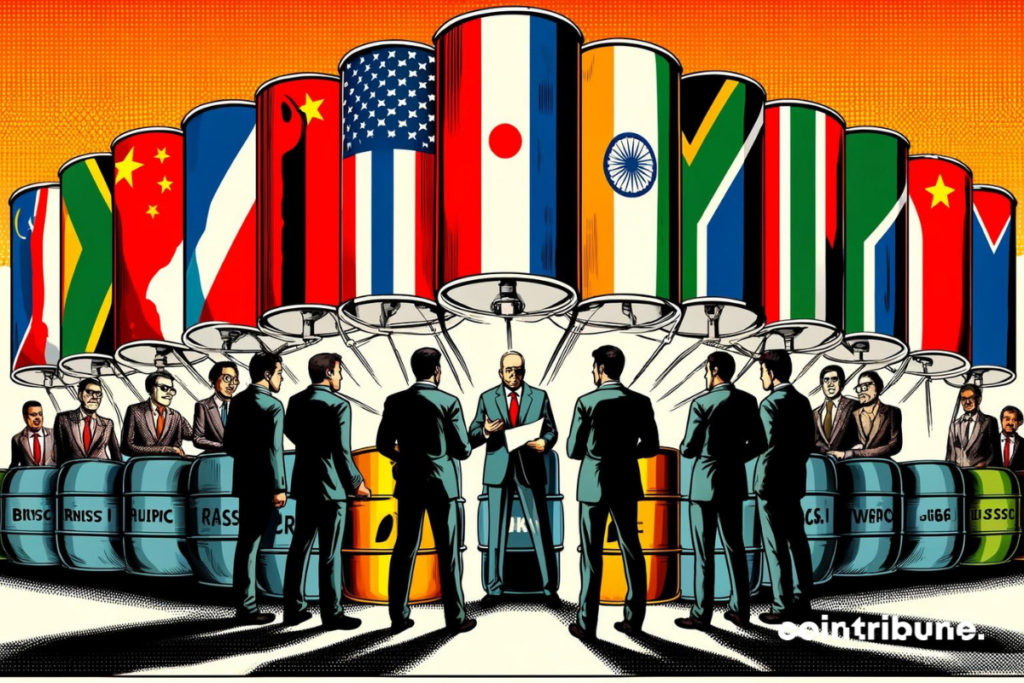BRICS: Europe puts an end to its dependence on Russian gas
Europe is about to disrupt the global energy balance. In seeking to end its reliance on Russian gas, it is turning to the United States and Norway to meet its energy needs. This strategic decision, motivated by geopolitical and economic considerations, could redefine international relations and profoundly affect the BRICS alliance, of which Russia is a key member. In a context where energy issues are more crucial than ever, the evolution of this situation deserves particular attention.

The End of European Dependence on Russian Gas
Europe, driven by Germany and the Czech Republic, is resolutely moving towards reducing its dependence on Russian liquefied natural gas (LNG). According to the latest available data, the European Union (EU) has intensified its gas purchases from the United States and Norway. This strategic shift “adds pressure on Russia“, resulting in a significant decrease in gas orders from Europe.
The European transition is part of a dynamic of diversifying energy sources, aiming to ensure greater energy security and reduce geopolitical risks. Although the EU continues to depend on Russian gas to the tune of 15%, initiatives to diversify its supplies show a clear willingness to minimize this dependence. LNG purchases from the United States and Norway, two major players on the global energy scene, illustrate this strategic reorientation aimed at ensuring long-term energy resilience for the European continent.
A Hard Blow for BRICS
Europe’s decision to reduce its dependence on Russian gas deals a hard blow to the BRICS alliance, one of whose main objectives is to dominate the global oil and gas sector. Recent initiatives by the BRICS alliance, such as the integration of new members like the United Arab Emirates, Egypt, Iran, and Ethiopia, which are major oil exporters, have not been enough to offset the loss of the European market.
Furthermore, efforts to integrate Saudi Arabia, a major player in the energy sector, into BRICS remain uncertain. The Kingdom, which has trade relations with both Europe and BRICS, might ultimately decline the invitation, further weakening the strategic position of the alliance.
This European reorientation towards alternative gas sources highlights the challenges BRICS must face to maintain their influence on the global energy market. The consequences of this new dynamic could result in a redistribution of power in favor of the United States and Europe, strengthening their dominance in this crucial sector.
Maximize your Cointribune experience with our "Read to Earn" program! For every article you read, earn points and access exclusive rewards. Sign up now and start earning benefits.
Diplômé de Sciences Po Toulouse et titulaire d'une certification consultant blockchain délivrée par Alyra, j'ai rejoint l'aventure Cointribune en 2019. Convaincu du potentiel de la blockchain pour transformer de nombreux secteurs de l'économie, j'ai pris l'engagement de sensibiliser et d'informer le grand public sur cet écosystème en constante évolution. Mon objectif est de permettre à chacun de mieux comprendre la blockchain et de saisir les opportunités qu'elle offre. Je m'efforce chaque jour de fournir une analyse objective de l'actualité, de décrypter les tendances du marché, de relayer les dernières innovations technologiques et de mettre en perspective les enjeux économiques et sociétaux de cette révolution en marche.
The views, thoughts, and opinions expressed in this article belong solely to the author, and should not be taken as investment advice. Do your own research before taking any investment decisions.